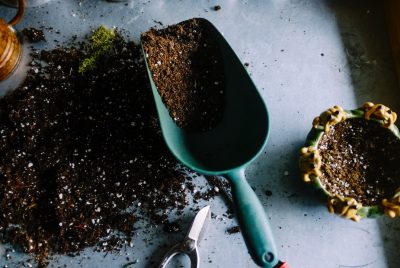The Art of Natural Gardening: Growing Vitamin-Rich Foods for a Healthier Future
As a passionate enthusiast of natural gardening, I believe in the power of nurturing and harnessing the natural world to grow our own food. In this article, I will explore the concept of natural gardening, its benefits, and provide helpful suggestions on how to ensure food security and grow vitamin-rich foods. Let’s dive in!
Understanding Natural Gardening
Natural gardening, also known as organic gardening or ecological gardening, is a method of cultivating plants in harmony with nature. It embraces sustainable practices, avoiding the use of synthetic fertilizers, pesticides, and genetically modified organisms (GMOs). Instead, it focuses on working with the natural ecosystem to create a healthy and balanced garden.
Benefits of Natural Gardening
There are numerous benefits to practicing natural gardening:
- Environmental Preservation: This type of practice promotes biodiversity, conserves water, and protects soil health. By avoiding harmful chemicals, we contribute to the preservation of our ecosystems and minimize pollution.
- Healthier and Tastier Produce: By growing food naturally, we can enjoy the true flavors and nutritional benefits of fresh produce. Organic fruits and vegetables are richer in vitamins, minerals, and antioxidants, supporting our overall health and well-being.
- Cost Savings: Being motivated as a gardener can save you money in the long run. By producing your own food, you reduce the need to purchase expensive organic produce from stores, resulting in significant cost savings over time.
- Food Security: In an unpredictable world, actively growing your own vegetables organically provides a sense of food security. By growing your own food, you become less reliant on external food sources, ensuring a steady supply of fresh and nutritious produce.
- Mood Improvement: Nature gardens have been found to offer innovative and beneficial practices for enhancing the well-being of people with mid- and late-stage dementia.
Ensuring Food Security
Food security is a pressing concern in today’s world. Here are some helpful suggestions to ensure food security that you can start now:
1. Start with the Basics: Soil Preparation
Creating a fertile and nutrient-rich soil is crucial for a subsequent successful harvest. Begin by testing your soil’s pH level and making necessary adjustments. Incorporate organic matter such as compost or well-rotted manure to enhance soil fertility and structure. This creates an optimal environment for plants to thrive.
2. Embrace Companion Planting
Companion planting is a strategy where mutually beneficial plants are grown together. Certain plant combinations repel pests, enhance pollination, and improve soil conditions. For example, planting marigolds alongside tomatoes can deter harmful insects, while beans can enrich the soil with nitrogen, benefiting neighboring plants.
3. Implement Organic Pest Control
We advocate using organic pest control methods to protect our plants. Use natural deterrents like neem oil, garlic spray, or soap solutions to repel pests. Encourage beneficial insects like ladybugs or lacewings, which feed on garden pests. Maintaining a healthy ecosystem within your garden helps prevent pest infestations.
4. Optimize Watering and Irrigation
Water is a precious resource, and efficient watering practices are essential in natural gardening. Water deeply and infrequently to encourage plants to develop deep root systems. Utilize mulch around plants to retain moisture, suppress weeds, and regulate soil temperature. Consider installing a rainwater harvesting system to minimize water waste.
5. Maintain the Garden
Regular garden maintenance is crucial to ensure a thriving natural garden. Weed regularly to prevent competition for resources and remove any diseased or pest-infested plants promptly. Monitor the health of your plants, and if necessary, provide organic fertilizers or amendments to address nutrient deficiencies.
Conclusion
Be rewarded using sustainable approaches to growing your own food. By embracing this practice, we contribute to environmental preservation, enjoy healthier produce, save money, and ensure food security. Start small, learn as you go, and witness the beauty and abundance that nature can provide.
FAQs
FAQ 1: Can I practice natural gardening in any location?
Yes, natural gardening can be practiced in various locations, including urban areas, suburban homes, or even small balconies. Adaptation is key, and you can tailor your garden to suit your available space and resources.
FAQ 2: How long does it take to see results?
Results can vary depending on several factors, including plant types, soil conditions, and climate. Generally, you can expect to see progress within a few weeks to a few months, but the journey of natural gardening is a continuous and rewarding process.
FAQ 3: Are natural gardening methods more time-consuming than conventional gardening?
Yes, by replacing conventional solutions (ie pesticides, non-organic fertilizers etc), organic gardening methods may require a bit more time and effort initially, but they often lead to long-term benefits such as healthier plants and reduced pest problems. As you gain experience, you’ll find ways to streamline your gardening tasks and make the process more efficient.
FAQ 4: Can I grow vitamin-rich foods in a natural garden?
Absolutely! Natural gardening provides an excellent opportunity to grow vitamin-rich foods. Leafy greens like spinach, kale, and Swiss chard are packed with vitamins A, C, and K. Citrus fruits, berries, and tomatoes are also great sources of vitamins and antioxidants.
FAQ 5: How can I learn more about natural gardening?
There are various resources available to expand your knowledge of natural gardening. Books, online articles, gardening forums, and local gardening communities can provide valuable insights, tips, and guidance on practicing natural gardening effectively.





